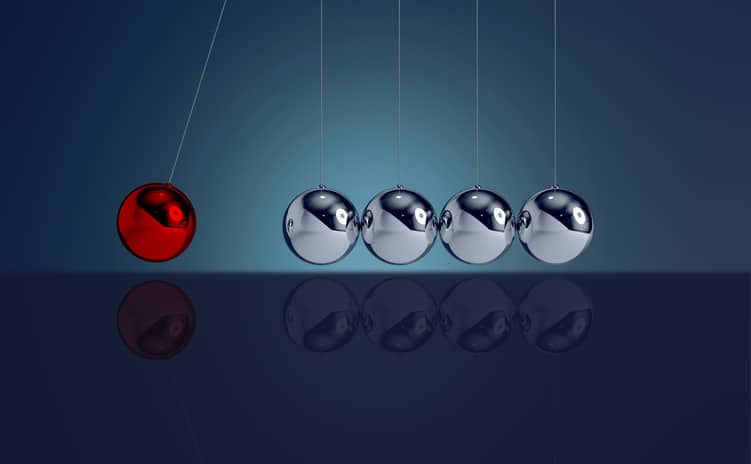Emotional Intelligence Coaching
You’re good at what you do. You’ve built a career through competence, drive, and hard work. But at a certain point, technical skill and intelligence aren’t enough to carry you further.
Leadership is no longer just about what you know, it’s about how well you connect, influence, listen, and respond. It’s about how you show up.
That’s where Emotional Intelligence comes in. If you’re finding yourself second-guessing conversations, navigating tension with colleagues, or feeling disconnected from the people around you (even as you keep delivering results), you’re not alone. Many high-performing professionals reach a point where they know something needs to shift, but they can’t quite name what it is.
Often, it starts with how we relate to ourselves and others.What is Emotional Intelligence?

Emotional Intelligence (EQ) is the ability to recognize, understand, and manage your own emotions while also tuning into the emotions of others.
It’s the foundation of effective leadership, meaningful collaboration, and healthy workplace culture. Unlike IQ or technical skills, EQ is something you can actively develop. And when you do, everything changes: conversations go better, conflict is easier to navigate, and relationships become more resilient.
There are five core competencies that form the backbone of emotional intelligence:

1. Self Awareness
This is your ability to recognize your own emotional patterns, reactions, and blind spots. It’s what helps you pause before reacting, understand how you’re being perceived, and lead with authenticity.
More on Self Awareness
What it looks like when developed:
- You notice when you’re triggered and know how to respond rather than react.
- You have clarity on your values, strengths, and impact.
- Others experience you as steady and self-aware, even under pressure.
Outcomes you can expect:
Through reflective coaching, feedback, and targeted insight, we identify what drives you and where emotion shows up in your leadership. You gain perspective, not just awareness.

2. Self-Regulation
This is your ability to manage emotions, stay calm under pressure, and recover quickly from setbacks. It doesn’t mean being emotionless, it means being intentional.
More on Self-Regulation
What it looks like when developed:
- You stay composed in difficult conversations.
- You don’t let stress leak into your leadership.
- You model calm and build trust in your team.
Outcomes you can expect:
Together, we work on building emotional agility, learning techniques to manage reactivity, handle discomfort, and lead from a more grounded place.

3. Motivation
This is the internal drive to pursue goals with energy, focus, and purpose, not for external rewards, but because it matters to you. It’s what keeps leaders resilient.
More on Motivation
What it looks like when developed:
- You feel aligned with your work, not just obligated by it.
- You bounce back from disappointment with clarity.
- Your team feels inspired by your example.
Outcomes you can expect:
We reconnect your work to your deeper values and sense of purpose, helping you move from effort to intention. Motivation becomes sustainable.

4. Empathy
Empathy is your capacity to understand the emotional experience of others, even when you don’t agree. It’s foundational to connection, trust, and inclusive leadership.
More on Empathy
What it looks like when developed:
- People feel heard and understood by you.
- You can navigate interpersonal differences with less defensiveness.
- You lead with compassion without losing accountability.
Outcomes you can expect:
I support you in tuning in to the signals others are sending, verbal and nonverbal, and in holding space for differing perspectives without losing clarity or direction.

5. Social Skills
These are the relationship-building tools of leadership: communication, influence, conflict resolution, collaboration. It’s where everything comes together.
More on Social Skills
What it looks like when developed:
- You communicate with clarity and presence.
- You handle difficult conversations without avoidance or escalation.
- You build strong, resilient professional relationships.
Outcomes you can expect:
We work through real-world leadership scenarios, developing communication strategies that reflect emotional intelligence and practical wisdom.
What You Can Expect from Coaching
In addition to coaching, I offer the option of using the Emotional Capital Report (ECR), a scientifically grounded assessment tool designed to measure key emotional intelligence competencies that influence leadership performance. As a certified ECR practitioner, I integrate this assessment into the coaching process when appropriate.
It provides a valuable starting point for reflection and growth, helping you gain objective insight into your strengths and development areas. Many clients find it useful to begin with a structured understanding of their current emotional landscape, adding focus, clarity, and momentum to our work together.

Emotional Intelligence coaching isn’t a formula or a shortcut. It’s steady, meaningful work that helps you strengthen how you relate to yourself and others, building clarity, connection, and depth that lasts.
Clients often walk away with:
This coaching is designed for thoughtful professionals who want to move beyond surface-level solutions. You don’t need someone to fix you, or tell you what you want to hear. You need a space to think out loud, challenge yourself, and grow into the kind of leader others trust and want to follow.
Why It Matters
Emotional Intelligence doesn’t just benefit you at work, it enhances your relationships with the people who matter most. Developing EQ helps you become more present, more attuned, and more connected not only with your team, but also with your family, spouse, children, and friends. It allows you to show up more fully in every area of your life and contributes to a richer, more meaningful experience both personally and professionally.
Emotional Intelligence is not soft. It’s strategic.
Research continues to show that EQ is a stronger predictor of leadership success than IQ or technical skill. It impacts how you hire, how you engage, how you lead, and how you’re remembered.
Whether you’re looking to step into a new leadership role, repair strained team dynamics, or simply grow into a more grounded version of yourself, emotional intelligence is a powerful place to begin.
What If It Could Feel Different?
Imagine feeling less reactive and steadier, even when the pressure is high. Imagine having more patience in your meetings, more presence with your family, and more clarity about what really matters. Emotional Intelligence coaching helps you find that space again, the one where your values align with your actions, and your leadership feels like an expression of who you are, not just what you do.
Let’s Talk
If you’re ready to strengthen your leadership from the inside out, let’s have a conversation. Whether you’re noticing specific challenges or simply want to lead with greater presence and impact, Emotional Intelligence coaching can help. Reach out today to book a free 20 minute consultation and take the first step toward becoming the kind of leader others trust, respect, and want to follow.
Because leadership isn’t about being perfect. It’s about being authentic and learning to lead from that place.
